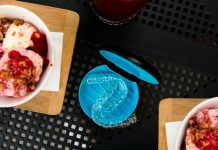
When you tell people that you are experiencing oral health issues, the first thing they might tell you is to brush your teeth properly. Many people mistakenly assume that brushing their teeth hard often can prevent all kinds of oral health problems, which is far from the truth.
Brushing your teeth helps remove food particles stuck between your teeth and prevent bacterial and plaque growth. However, brushing too hard can actually damage your teeth by removing your tooth enamel completely. If brushing your teeth regularly does not help, you must consult with a Sedona dentist today.
What is plaque?
Plaque is a white substance that develops on your teeth near the gum area. It can be easily removed with a Q-tip and requires very little force to clean. Therefore, if you are putting too much force, you are probably doing too much to your teeth.
The thumb rule to follow is that if the bristles of your toothbrush are bending, you are applying more force than needed. Tooth enamel is hard and made to withstand strong force, but it cannot withstand daily overzealous brushing.
What happens when you brush too hard?
1. Gum recession.
Brushing too hard will hurt your gums, and they will shrink back. When this happens, more of your teeth will show, which will not only ruin your smile but affect your oral health as well. As you keep brushing hard, the more your gums will recede, eventually exposing your roots. Tooth roots are much more vulnerable to outside stimuli and can deteriorate faster than the top portion of your teeth.
2. Premature wear and tear.
Tooth enamel is the hardest part of your body. Therefore, people might think that it can withstand almost all kinds of hard brushing. However, that is not so. Even though teeth enamel is hard, it can still erode due to improper ways of brushing.
The worst part, once your tooth enamel is gone, it does not grow back naturally. Therefore, it is significant and permanent damage. The absence of tooth enamel can increase cavity risk.
Other ways of dealing with plaque
Brushing and flossing are two effective ways of dealing with plaque and the most common ones. However, there are other ways as well. Eating probiotics will prevent the growth of disease-causing bacteria and promote good bacteria. If you cannot find probiotic food, you can also use pills.
The bottom line is that the key to healthy teeth is brushing but in the right way. You cannot just brush in whichever way you want and expect excellent teeth.










